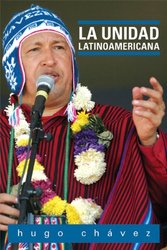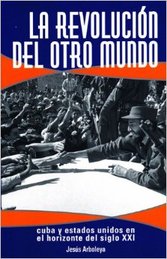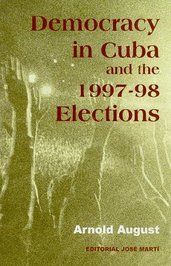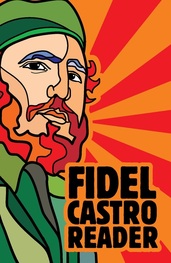Defining ideology as “a comprehensive, long-term political agenda intended to mobilize large numbers of people” (1995:94), Immanuel Wallerstein maintains that since the French Revolution there have been three ideologies that have dominated public discourse in the world-system: conservatism, liberalism, and radicalism (although radicalism did not differentiate itself from liberalism until 1848). All were reacting to the French Revolution, which established the principle that all citizens have equal rights, and the society should evolve toward the protection of the rights of citizens in practice. Conservatives advocated a slow process of change toward equality, controlled by traditional elites. Liberals advocated a reasoned change, not too fast and not too slow, directed by technicians and specialists; liberals believed in a “conscious, continual, intelligent reformism” that would lead to the good society (1995:76). Radicals advocated rapid change directed by worker’s organizations. All three ideologies had rhetoric of hostility to the state, but all three in practice strengthened states structures, because they found the state necessary for the implementation of their projects (Wallerstein 1995:75-85, 95-100, 148-49, 235, 255-56).
Wallerstein maintains that conservatives came to recognize that some concessions to the popular classes of workers, peasants, and migrants were necessary for political stability, thus they moved toward liberalism, forming a conservative version of liberalism. At the same time, radicals came to understand the wisdom of the more reasoned approach, and thus they came to adopt a radical variant of liberalism. Thus, all three ideologies ultimately represented liberalism, characterized by a belief in gradual change toward the protection of the rights of all citizens, expressed in the two variants of conservative liberalism and radical liberalism (1995:96-101, 235-37).
Liberalism, with its two versions, was the dominant ideology of the world-system from 1789 to 1968, with organizations, leaders, intellectuals, and academics sharing in its premises, whether they called themselves conservatives, liberals, or radicals (Wallerstein 1995:89, 240, 273). Liberalism succeeded during this period because its program of concessions to core popular classes was financed by the appropriation of surplus value from peripheral and semi-peripheral regions, a super-exploitation that was justified by a belief that the peoples of these zones were “barbarians,” different from the “civilized” nations (1995:153).
On the international plane, liberalism came to mean the protection of the equal sovereign rights of all nations, and there was here too a vision of a gradual process of change in which the world would move in practice toward equality among nations. The liberal vision applied at the world level was most fully develop developed by Woodrow Wilson, with his call for self-determination, and by Franklin Delano Roosevelt, who envisioned the economic development of peripheral and semi-peripheral zones. This vision was embraced by newly independent nations in Africa and Asia in the 1960s, which envisioned national development that would enable them to catch up to the nations of the West. However, liberalism on the world scale could not be nearly as successful as liberalism in the nations of the core, because the capitalist world-economy functioned on the basis of the super-exploitation of labor in peripheral and semi-peripheral regions. Concessions could be made to the demands of core workers, but this could not be duplicated on a world scale (Wallerstein 1995:102-4, 113-15, 162-63, 238-39, 259-62).
In accordance with his interpretation of the ideologies of the world-system, Wallerstein considers Leninism to be a variant of liberalism. Wallerstein concedes that Lenin criticized social democracy for its evolution toward liberalism, and he sought to return to the genuinely radical roots of Marxism. But, Wallerstein maintains, in the evolution of the Soviet Union, there was an evolution toward liberalism, a process accelerated with Stalin and culminating with Gorbachev. This can be seen in the fact that the Soviet Union sought to industrialize and to become a powerful state in the world-system. On the international plane, Leninism evolved from world revolution to anti-imperialism and the construction of socialism in particular nations, which Wallerstein interprets as consistent with the liberal vision of the gradual economic development of the nations of the world. Although Wallerstein acknowledges that there are significant differences between Lenin and Wilson, he maintains that we should not be blind to the similarities, and he thus refers to the Wilson-Leninist reform package for the Third World, which he sees as the application of liberalism on a world scale (1999:13-14, 102-3, 109-16, 49, 137-38, 156, 239-40).
Wallerstein maintains that liberalism has lost legitimacy, thus establishing a crisis of ideology in the world-system. He describes the fall of liberalism as involving a decline of faith in the capacity of governments to adopt policies and develop programs that bit by bit improve the conditions in which people live. In the case of the working and middle classes of the core, this loss of faith was driven by the decreasing capacity of states to respond to the increasing demands of the people. In the case of the Third World, it was established by the failure of Third World national liberation governments to overcome the underdevelopment that was a legacy of the colonial era. Wallerstein maintains that the “Revolution of 1968” was a significant factor in undermining the legitimacy of liberalism, for it criticized the three types of movements against the system: communism in Eastern Europe and Asia, social democracy in Western Europe and North America, and national liberation in the Third World (1996:64-65, 89, 106, 116, 240-41, 265-66).
Wallerstein notes that there were four exceptions to the prevailing pattern of radicalism converting itself into liberalism. Four nations refused to accept the rules imposed by the United States: China, Vietnam, Algeria, and Cuba. These nations fiercely pursued political autonomy (1995:51-53). Wallerstein maintains, however, that the four exceptions operated within the framework of the eighteenth century Enlightenment world view. They were against the system but of the system (1995:189).
For the Third World, Wallerstein sees three possibilities. First is the “Khomeini option, which he describes as anger and denunciation of the West. Secondly, there is the “Saddam Hussein option,” or economic transformation through acquiring larger states by military force. And the third option is migration (1995:21-22, 189-90, 243-45).
In subsequent posts, I will endeavor to critically analyze Wallerstein’s view of the ideologies of the world-system and the possibilities that exist today for the Third World.
References
Wallerstein, Immanuel. 1995. After Liberalism. New York: The New Press.
Key words: Third World, revolution, colonialism, neocolonialism, imperialism, democracy, national liberation, sovereignty, self-determination, socialism, Marxism, Leninism, Cuba, Latin America, world-system, world-economy, development, underdevelopment, colonial, neocolonial, blog Third World perspective, Wallerstein, world-systems analysis, liberalism







 RSS Feed
RSS Feed












